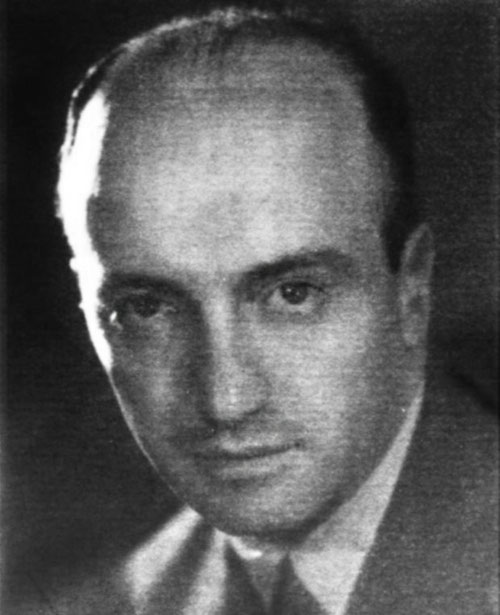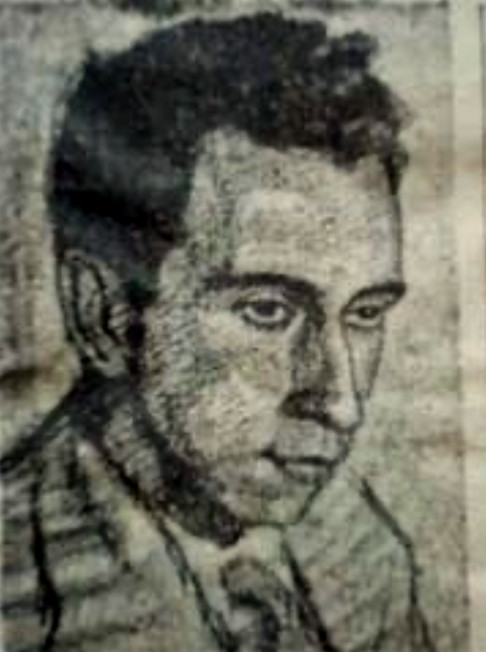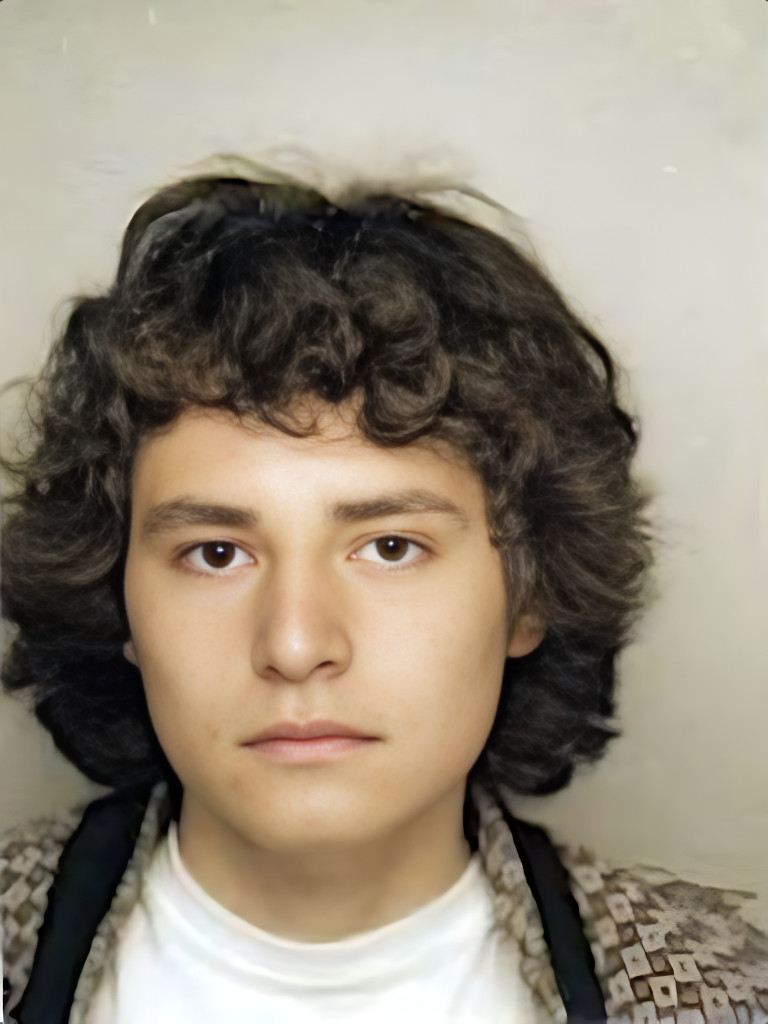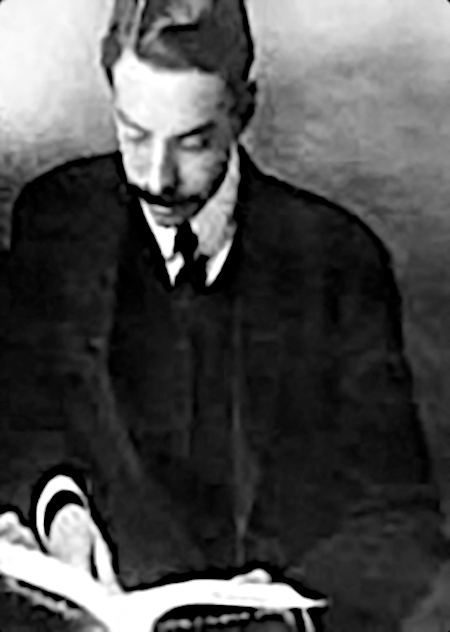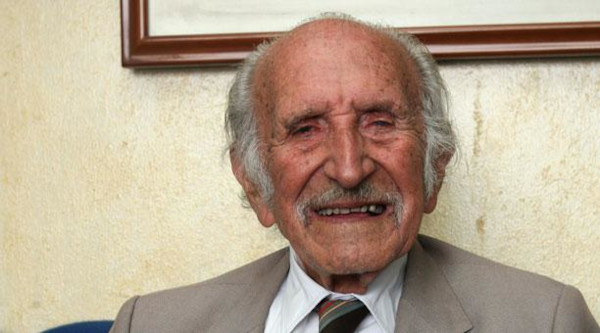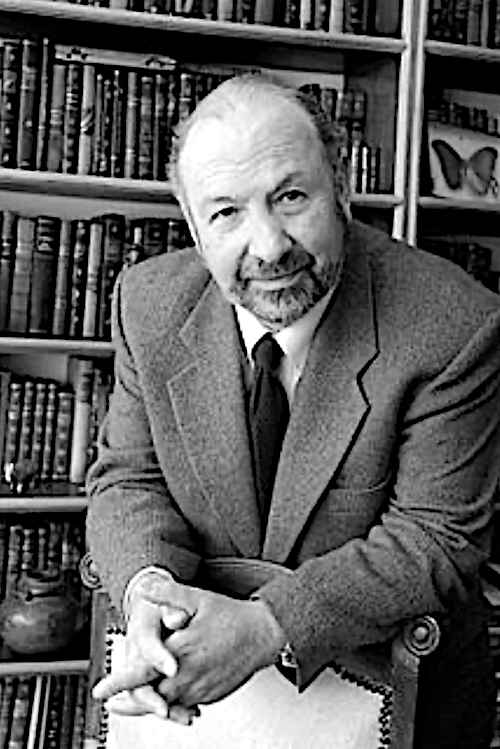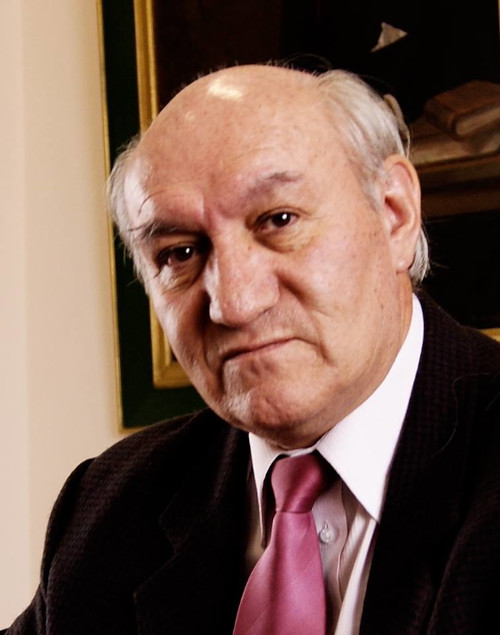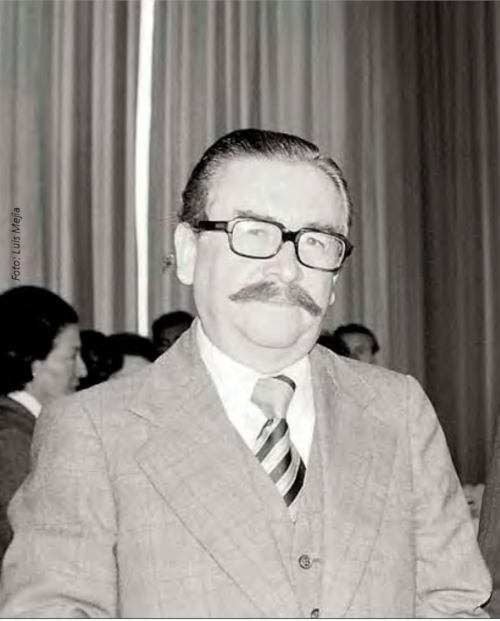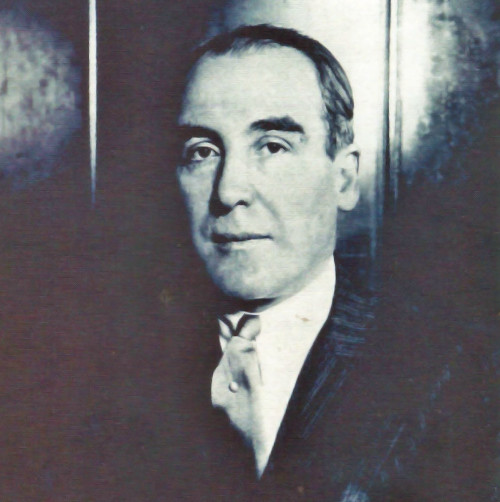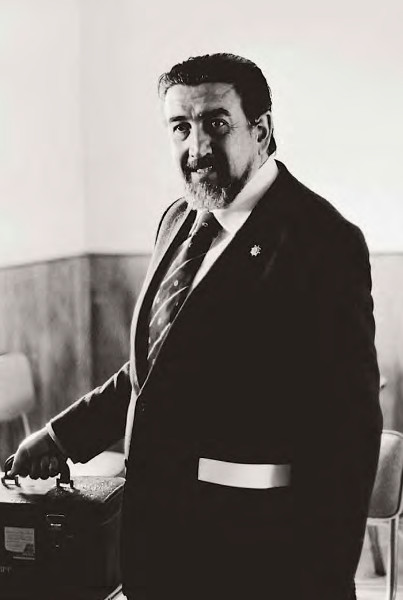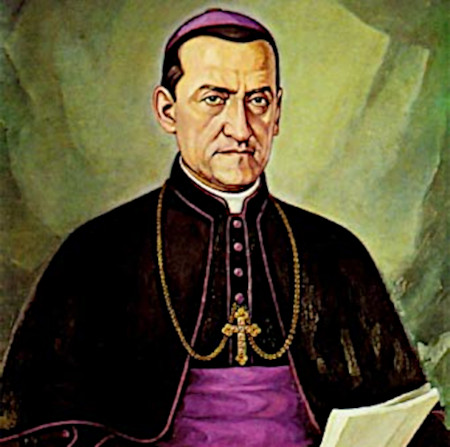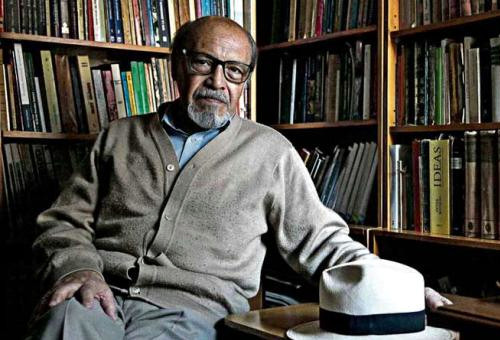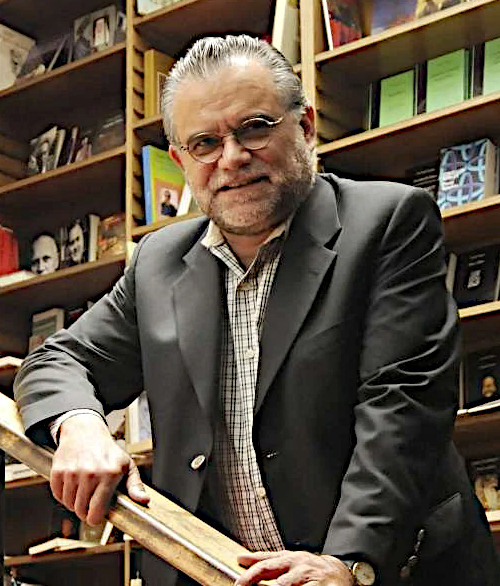Gonzalo Escudero Moscoso (Quito, September 28, 1903 – Brussels, October 10, 1971) was an Ecuadorian poet, academic and diplomat. He earned a doctorate in jurisprudence at the Central University of Ecuador. He was a distinguished professor of international law at the University of Quito, Secretary of Education, Secretary of Congress, and Minister of Foreign Affairs. He served as Ecuador’s ambassador to Uruguay (1942-1845), Peru (1956), Argentina (1961), Colombia (1963), Brazil (1965), UNESCO (1960) and Belgium (1971). In 1964 he was appointed Chancellor of the Republic. At age 16 he published his first book of poems “Los Poemas del Aire,” which won the National Intercollegiate Poetry Contest of 1918. His second book of poems “Las Parábolas Olímpicas” won at the University Floral Games of 1922. He published over a dozen other books, including 2 books posthumously: “Réquiem por la Luz” and “Nocturno de Septiembre.”
Continue reading “Gonzalo Escudero Moscoso”Category: Writers from Quito
Ignacio Lasso
Ignacio Lasso (Quito, 1911 – 1943) was an Ecuadorian poet who was the mentor and founder of the magazine of the poets of Elan, a group comprised of Ecuadorian poets born between 1905 and 1920. He worked with several magazines during his career.
Continue reading “Ignacio Lasso”Humberto Fierro
Humberto Fierro Jarrín (Quito, June 17, 1890 – Quito, August 23, 1929) was an Ecuadorian poet of modernismo, a literary movement that took place primarily during the end of the nineteenth and early twentieth-century in the Spanish-speaking world. He was close friends with Arturo Borja, Ernesto Noboa, and other tormented poets of the early twentieth century who committed suicide and were thus dubbed the “Decapitated Generation.” This group was heavily influenced by Rubén Darío’s modernismo movement as well as 19th-century French romantic poetry. Fierro’s best known poems can be found in his poetry collections, “El laud en el valle,” published in 1919, and “La Velada Palatina,” published posthumously in 1949. He spent almost all of his working life as a clerk in a Public Ministry Office. He died at the age of 39 in 1929 from a mountain fall, which some believe was suicide.
Continue reading “Humberto Fierro”Oswaldo Calisto Rivera
Oswaldo Calisto Rivera, known by his pen name Cachibache, often spelled Cachivache (Quito, September 22, 1979 – October 10, 2000) was an Ecuadorian poet and painter who died of suicide at the age of 21. In 2001 Cachibache’s only book of poems “Rojo encanto de la marmota” was published posthumously by the House of Ecuadorian Culture in Quito. He also completed a yet unpublished poetic trilogy which consists of: “La cachiva,” “Comible Sr. Lucas Alombrey” and “La falta de pantuflismo.” Cachibache’s poems have been included in several anthologies, such as Memorias del primer festival de poesía joven Hugo Mayo (2005), 13 poetas ecuatorianos nacidos en los 70 (2008), and Premonición a las puertas (2012).
Continue reading “Oswaldo Calisto Rivera”Arturo Borja
Arturo Borja Pérez (Quito, Ecuador, September 15, 1892 – Quito, Ecuador, November 13, 1912) was an Ecuadorian poet associated with the “Generación decapitada” (Decapitated Generation), a group of young poets known for their tragic early deaths. Borja was the first of the group to adopt Modernist styles, drawing influence from French Symbolist poets like Baudelaire and Verlaine, whom he studied while in Paris seeking medical treatment. His poetic output, though limited, includes twenty-eight poems compiled in the posthumous collection La flauta de ónix (1920). Known for themes of melancholy and existential reflection, his work has made a lasting impact on Ecuadorian literature, marking him as a key figure in early 20th-century Ecuadorian poetry.
Continue reading “Arturo Borja”Nicolás Kingman Riofrío
Nicolás Kingman Riofrío (Loja, November 18, 1918 – Quito, March 19, 2018) was an Ecuadorian writer, journalist and politician
Continue reading “Nicolás Kingman Riofrío”Francisco Tobar García
Francisco Tobar García (Quito, November 3, 1928 – Quito, February 1, 1997) was an Ecuadorian poet, playwright, novelist, essayist, journalist, literary critic, diplomat, and university professor. He earned a Ph.D. in Literature from the Pontifical Catholic University of Ecuador and held teaching positions at universities such as La Plata in Argentina, the Sorbonne in Paris, and Complutense in Madrid. He revitalized Ecuadorian theater with his plays and published several notable works of poetry and fiction, including Pares o nones and Autobiografía admirable de mi tía Eduviges, which critics consider his masterpiece. He also served as a diplomat in Spain, Haiti, and Venezuela.
Continue reading “Francisco Tobar García”Jorge Núñez Sánchez
Jorge Núñez Sánchez (Bolivar, February 6, 1947 – Quito, November 1, 2020) was an Ecuadorian writer, historian, and professor. He was the author of 56 books and co-author of 66 other books. He was a professor at the Central University of Ecuador and Treasurer of the National Academy of History. In 1992 he was appointed the director of the Department of History and Geography of the House of Ecuadorian Culture. In 2010 he was awarded the Eugenio Espejo Prize in Culture by the President of Ecuador.
Continue reading “Jorge Núñez Sánchez”Galo René Pérez
Galo René Pérez (Quito, April 3, 1923 – June 18, 2008) was an Ecuadorian writer, poet, literary critic, biographer, and college professor. He held various posts in literary and cultural institutions of Ecuador. He was Secretary of Public Education during the government of the former President Galo Plaza, and served as Secretary General of the Council of Government. He was also President of the House of Ecuadorian Culture and Director of the Ecuadorian Academy of Language. He published 14 books in his career. His lectures, essays, articles, literary criticism have been collected and published for study abroad. His style, which is simple and elegant, has won him admirers the world over. He was the 2004 recipient of the “Premio Eugenio Espejo” Ecuador’s highest literary award.
Continue reading “Galo René Pérez”Gonzalo Zaldumbide
Gonzalo Zaldumbide (Quito, December 25, 1884 – Quito, November 30, 1965) was an Ecuadorian writer and diplomat. He was ambassador to Paris, minister of Foreign Relations (1929) and ambassador to London (1950).
Jorge Salvador Lara
Jorge Salvador Lara (Quito, September 4, 1926 – Quito, February 8, 2012) was an Ecuadorian politician, diplomat, columnist, writer, and historian. Lara held the position of Ecuador’s Foreign Minister twice. In 1966, he was appointed Foreign Minister in the administration of interim President Clemente Yerovi. From 1976 to 1977, Lara served as Foreign Minister under Vice Admiral Alfredo Poveda’s military regime.
Continue reading “Jorge Salvador Lara”Federico González Suárez
Federico González Suárez (Quito, April 12, 1844 – Quito, December 1, 1917) was an Ecuadorian priest, historian and politician who served as the Archbishop of Quito for twelve years. Prior to becoming the Archbishop of Quito, he served as a senator in the Ecuadorian government in 1894 and then as the Bishop of Ibarra from 1895 to 1905. He wrote several books about the history of Ecuador, among them the book Historia General de la República del Ecuador, which is considered a masterpiece for its objectivity, painstaking research and erudition. He was not shy about criticizing the Church in Ecuador for abuses during the colonial period. The publication of the fourth volume of his history in 1894 was particularly scandalous since it uncovered the sexual liaisons of seventeenth-century Dominican friars in Quito. Although this work drew criticism from his superiors, he was ultimately vindicated, with the Vatican acknowledging the veracity of his analysis.
Continue reading “Federico González Suárez”Simón Corral
Simón Corral (Quito, January 5, 1946) is an Ecuadorian poet and dramatist. He studied sociology at the Central University of Ecuador, and was the president of the Federation of University Students of Ecuador. He was later a professor at the Central University of Ecuador.
Continue reading “Simón Corral”Fernando Tinajero
Fernando Tinajero Villamar (Quito, January 5, 1940) is an Ecuadorian novelist, essayist, and university professor. In the 1960s he was one of the most active members of Tzantzismo a cultural vanguard movement which had roots in the Cuban revolution. In 1971 he earned a PhD in philosophy from Charles University (Univerzita Karlova) in Prague. He is best known for his essay writing and his novel El desencuentro (1976). He was the 2015 recipient of the Eugenio Espejo Prize in literature awarded by the Ecuadorian president.
Continue reading “Fernando Tinajero”Alfonso Reece Dousdebés
Alfonso Reece Dousdebés (Cotocollao, 1955) is an Ecuadorian journalist, TV reporter, and novelist. He studied law and sociology at the Pontifical Catholic University of Ecuador. He worked as a reporter since 1980 for the television channels Ecuavisa and Teleamazonas. In 1990 he decided to become a print journalist and has since worked for many leading journals of Ecuador, among which are 15 Días, Vistazo, SoHo, Mango and Mundo Diners. An article in the latter magazine earned him the Jorge Mantilla Ortega Prize from El Comercio in 1998. He is currently a columnist for the newspaper El Universo. His novels include “El Numerario” (1996), “Morga” (2007), and “Todas las aves” (2013). Critic Antonio Sacoto has acclaimed “Todas las aves” as the best-written Ecuadorian novel of the 21st century.
Continue reading “Alfonso Reece Dousdebés”
